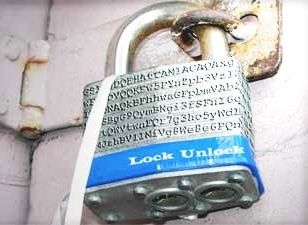The US Government will lose the battle to keep encryption off consumer devices such as mobile phones, tablets and PCs.
That is the prediction of Google’s executive chairman Eric Schmidt, who predicted that the tech industry will win this particular battle with the authorities.
Encryption Battle
The tech industry and governments around the world have been engaged for a while in a battle to halt the firms employing strong encryption options on mobile devices and computers.
In January, Prime Minister David Cameron said that he wanted British intelligence agencies to be able to monitor the encrypted communications of terror suspects and has suggested such legislation would be introduced if the Conservatives win a majority in this year’s General Election.
The heads of the NSA and FBI have also previously complained about the encryption on devices from the likes of Google and Apple, which they said could hurt their ability to track down criminals and terrorists.
But Google’s executive chairman Eric Schmidt thinks that those efforts by the authorities are doomed to failure, and that technology companies would eventually win the debate about encryption.
 “We don’t know how to build a trap door in these systems, which is only available to the good guys,” Schmidt was quoted by the Hill as saying on Wednesday at the American Enterprise Institute.
“We don’t know how to build a trap door in these systems, which is only available to the good guys,” Schmidt was quoted by the Hill as saying on Wednesday at the American Enterprise Institute.
“If we put a trap door in our system, first we would have to disclose it, because people would find out anyway, and second, some evil person, in addition to the good guys would figure out a way to get in it. And I think the whole trust of this model is really really broken,” Schmidt said.
We Will Win
“We’ve taken a very tough line in the industry over this issue, and I think we will win this one, at least in America, because the encryption technology is broadly understood [and] the current encryption technology is largely unbreakable,” he said.
But Schmidt did admit that he was sympathetic to the argument that the government needs to see what is going on. But he rejected the idea that governments can do it without a court order.
Yesterday for example, it was revealed that while GCHQ does need authorisation to hack into devices used by intelligence targets, it already has the power and authority to infiltrate anyone’s computers and mobile phones worldwide, irrespective of whether they are suspected of being a national security risk or criminal.
Schmidt also said that Google receives thousands of national security requests for information, which he said is manageable.
“So my answer to the government and the US government, is it’s called a front door,” he said.
Can you protect your privacy online? Take our quiz!




